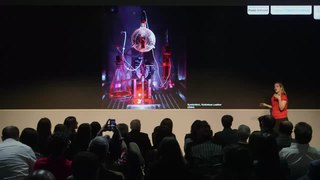A Quote by Isaac Asimov
When, however, the lay public rallies round an idea that is denounced by distinguished but elderly scientists and supports that idea with great fervor and emotion - the distinguished but elderly scientists are then, after all, probably right.
Related Quotes
When a distinguished but elderly scientist states that something is possible, he is almost certainly right. When he states that something is impossible, he is very probably wrong. Perhaps the adjective 'elderly' requires definition. In physics, mathematics, and astronautics it means over thirty; in the other disciplines, senile decay is sometimes postponed to the forties. There are, of course, glorious exceptions; but as every researcher just out of college knows, scientists of over fifty are good for nothing but board meetings, and should at all costs be kept out of the laboratory!
Here's the scientific community saying, fundamentally, "If we don't change our ways, we're screwed." And they got no attention at all. Even though the Union of Concerned Scientists put out this statement which was signed by more than half of all the Nobel laureates in science and another 1,500 distinguished scientists.
The common idea that scientists reject a theory as soon as it leads to a contradiction is just not so. When they get something that works at all they plunge ahead with it and ignore its weak spots... scientists are just as bad as the rest of the public in following fads and being influenced by mass enthusiasm.
1. When a distinguished but elderly scientist states that something is possible, he is almost certainly right. When he states that something is impossible, he is very probably wrong. 2. The only way of discovering the limits of the possible is to venture a little way past them into the impossible. 3. Any sufficiently advanced technology is indistinguishable from magic.
After all the allowances are made for the necessity of having a few supermen in our midst - explorers, conquerors, great inventors, great presidents, heroes who change the course of history - the happiest man is still the man of the middle class who has earned a slight means of economic independence, who has done a little, but just a little, for mankind and who is slightly distinguished in his community, but not too distinguished.

































